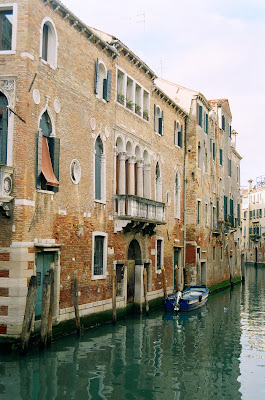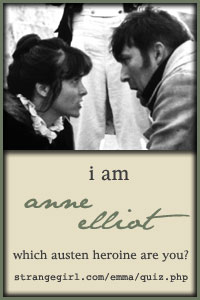I love cloisters, and the colors of this particular one, but am not coming up with the words to fit it, late on a late September day. I have found this poem, though, that talks of another Italian cloister and its roses.
Chiostro Verde
HERE in the old Green Cloister
At Santa Maria Novella
The grey well in the centre
Is dry to the granite curb;
No splashing will ever disturb
The cool depth of the shaft.
In the stone-bordered quadrangle
Daisies, in galaxy, spangle
The vivid cloud of grass.
Four young cypresses fold
Themselves in their mantles of shadow
Away from the sun's hot gold;
And roses revel in the light,
Hundreds of roses; if one could gather
The flush that fades over the Arno
Under Venus at sundown
And dye a snow-rose with the colour,
The ghost of the flame on the snow
Might give to a painter the glow
Of these roses.
Above the roof of the cloister
Rises the rough church wall
Worn with the tides of Time.
The burnished pigeons climb
And slide in the shadowed air,
Wing-whispering everywhere,
Coo and murmur and call
From their nooks in the crannied wall.
Then on the rustling space,
Falling with delicate grace,
Boys' voices from the far off choir,
The full close of a phrase,
A cadence of Palestrina
Or something of even older days,
No words—only the tune.
It dies now—too soon.
Will music forever die,
The soul bereft of its cry,
And no young throats
Vibrate to clear new notes?
While the cadence was hovering in air
The pigeons were flying
In front of the seasoned stone,
Visiting here and there,
Cooing from the cool shade
Of their nooks in the wall;
Who taught the pigeons their call
Their murmurous music?
Under the roof of the cloister
A few frescoes are clinging
Made by Paolo Uccello,
Once they were clear and mellow
Now they have fallen away
To a dull green-gray,
What has not fallen will fall;
Of all colour bereft
Will nothing at last be left
But a waste wall?
Will painting forever perish,
Will no one be left to cherish
The beauty of life and the world,
Will the soul go blind of the vision?
Who painted those silver lights in the daisies
That sheen in the grass-cloud
That hides their stars or discloses,
Who stained the bronze-green shroud
Wrapping the cypress
Who painted the roses?
—Duncan Campbell Scott
© Toronto:
McClelland & Stewart, 1935
image: Christie B. Cochrell, Cloister with Pink Roses, Verona










































